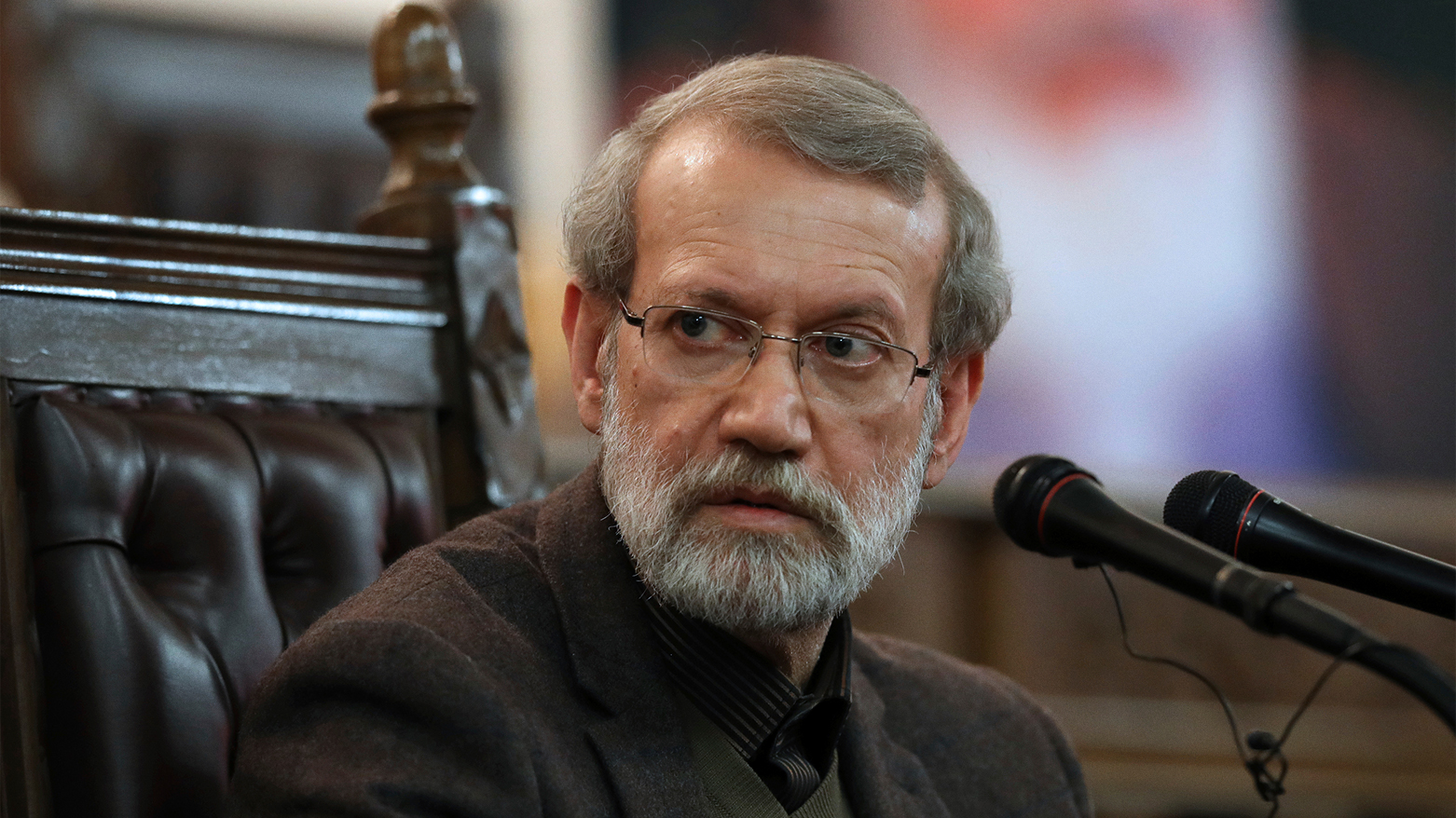'Essence of Nuclear Issue Political, Not Legal,' Larijani Claims
“Negotiation is a tool, not a principle,” he stated. “It depends on timing and conditions. If it serves the national interest, we pursue it; if not, we must have the clarity and strength to step back.”

By Kamaran Aziz
ERBIL (Kurdistan24) – In a sharp defense of Iran’s stance on its nuclear program and broader foreign policy posture, senior Iranian official Ali Larijani reiterated on Saturday that the country’s approach to negotiations with the United States is guided by national interest, not ideology or permanent opposition.
Speaking at a Teacher’s Day event at Tehran’s Shahed University, Larijani, a senior advisor to Supreme Leader Ayatollah Ali Khamenei, emphasized that talks with the United States are neither inherently good nor bad. “Negotiation is a tool, not a principle,” he stated. “It depends on timing and conditions. If it serves the national interest, we pursue it; if not, we must have the clarity and strength to step back.”
Larijani underscored that the nuclear standoff is primarily political rather than legal. “If this were a purely legal matter, the International Atomic Energy Agency would have resolved it,” he said. “The issue is not about legality—it’s about power politics. Iran needs nuclear knowledge, and it abides by international frameworks, but the bullying powers of the world impose their will instead of reason.”
He linked the broader issue of sanctions to Iran’s revolutionary history, arguing that punitive measures began when the Islamic Republic emerged independent of both American and Soviet influence. “The Americans never forgave Iran for stepping out of their orbit,” Larijani said, asserting that sanctions are a tool of containment rooted in geopolitical resentment rather than nonproliferation concerns.
Larijani also touched on the challenges of diplomacy in a world dominated by asymmetric power. “Global governance today lacks fairness and rationality,” he observed. “Power, not principle, determines outcomes. Many rules that appear neutral are, in fact, backed by coercive interests.”
In a broader regional context, Larijani rejected accusations that Iran fosters regional instability by backing resistance movements. “Did we create Hezbollah?” he asked rhetorically. “No. When Israel invaded Beirut, the people responded. We supported that response, but it was not engineered by us. The same happened in Iraq, when the U.S. invaded and Grand Ayatollah Sistani called for resistance.”
He went further, arguing that Iran’s actions in Syria and other hotspots are defensive rather than imperial. “Occupation breeds resistance. Whenever a part of Syria is under occupation, people resist, and somehow we are blamed for it. That’s not our doing. The Islamic Republic will not remain passive—it must defend itself.”
Regarding Iran’s nuclear intentions, Larijani was clear: “We are not pursuing nuclear weapons. This is my personal opinion, but strategic decisions belong to the Supreme National Security Council and the Leader. Our position is consistent with nonproliferation, though our critics deliberately distort it.”
Asked about philosophical inspirations for negotiation, Larijani cited the legacy of Martyr Morteza Motahhari. “Motahhari’s principle was rationalism and societal welfare. Negotiations are acceptable only if they serve the people, not as ends in themselves.”
He also acknowledged that Iran continues to face serious internal and external pressures. “Some want us to sacrifice internal well-being for regional commitments,” he said, “but we haven’t. The challenges in Palestine and elsewhere long predate the Islamic Republic. Our problems are many, and we must address them without illusion.”
In closing, Larijani stressed the importance of regional diplomacy. “The right approach is to build a field of interaction with our neighbors—not to play on a chessboard designed by others. Disagreements can be resolved through negotiation based on mutual interest, but we should not let outsiders define our strategic landscape.”
The remarks come amid ongoing speculation about the fate of U.S.-Iran nuclear talks, with diplomatic overtures and tensions alternating in rhythm. With Larijani’s comments, Iran signals that while it remains open to engagement, it will not bend to pressure—neither from Washington nor its regional rivals.
